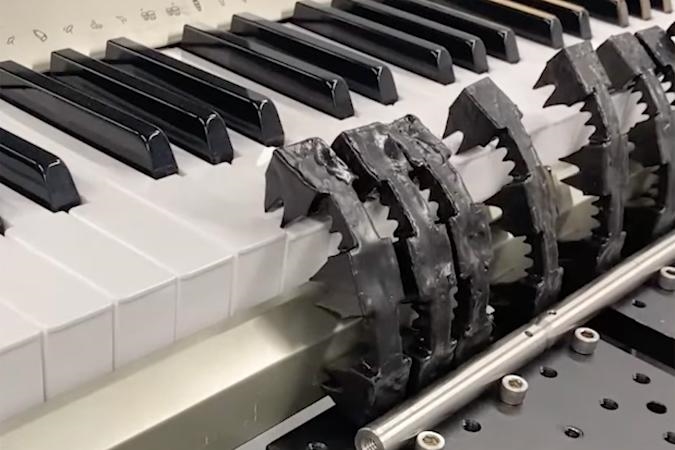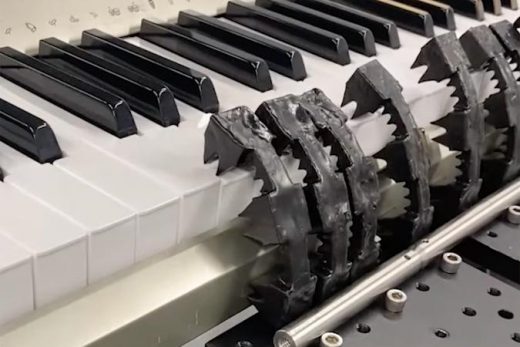Soft robot plays piano thanks to ‘air-powered’ memory
Soft robot can play piano thanks to ‘air-powered’ memory
Robots might not need rigid chips to perform everyday tasks.


Soft robots still tend to rely on hard electronics to function, but a new invention might reduce that need for unyielding chips. UC Riverside researchers have developed pneumatic computer memory that they used to help a soft robot play keyboards.
Instead of conventional transistors and electric circuits, the “air-powered” memory relies on microfluidic valves that control airflow. Atmospheric pressure in a given valve represents a binary “0,” while a vacuum indicates a “1.” The researchers’ memory has a complex-enough array of these valves to function like an 8-bit RAM chip — not exactly powerful, but good enough that a pair of soft robot hands can play “Mary Had a Little Lamb” at a slow but steady pace.
The absence of positive pressure makes this particularly safe — there’s no danger of the memory exploding in mid-use.
The technology is far from ready for everyday use. Besides needed improvements to complexity and speed, a robot would need soft versions of processors and other components to completely eliminate the need for rigid electronics. The goal is clear, however. Pneumatic memory could at least reduce the need for chips in soft robots, and points to a future of completely flexible robotics that shouldn’t hurt you if there’s a collision.
(14)


